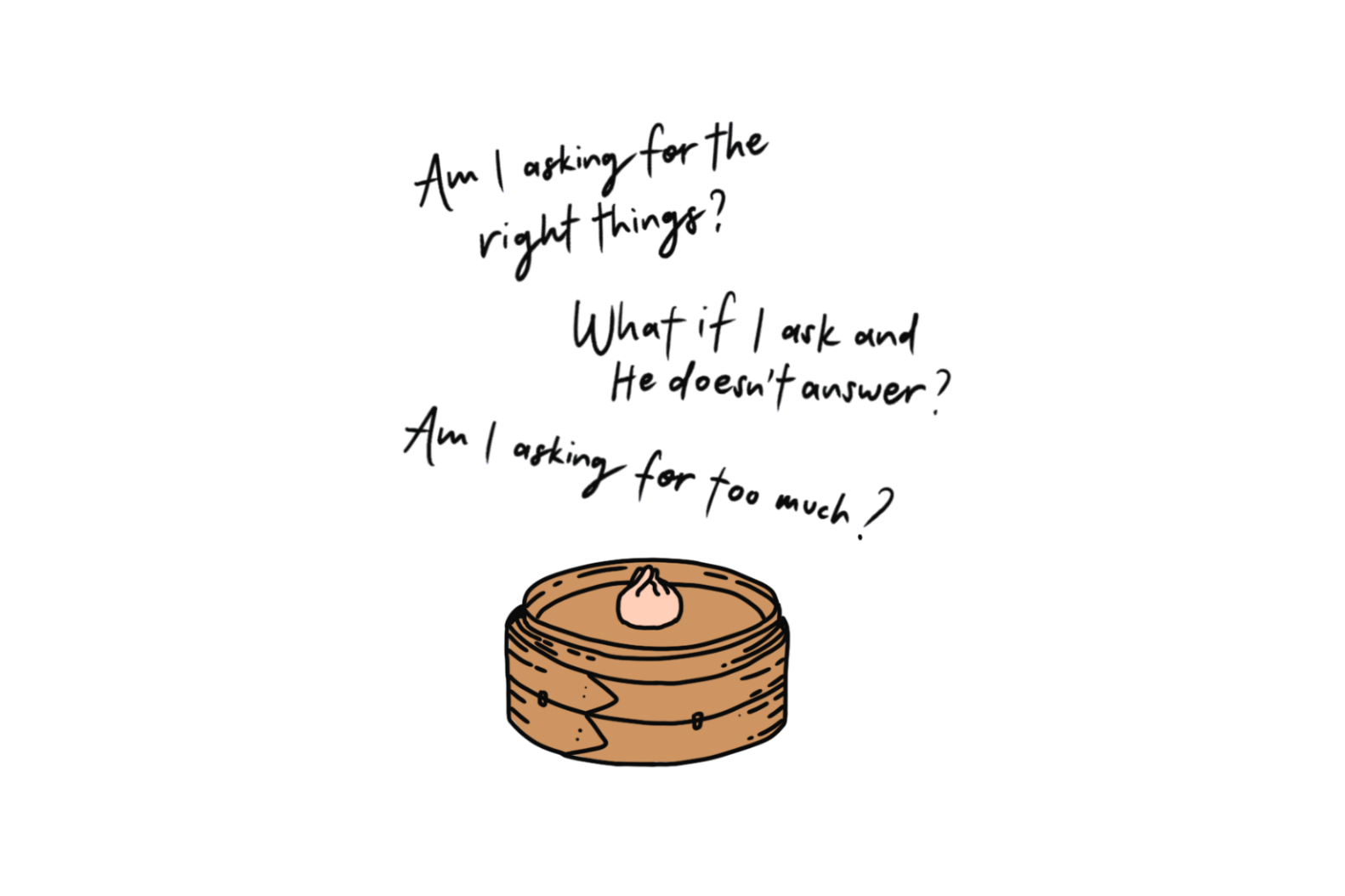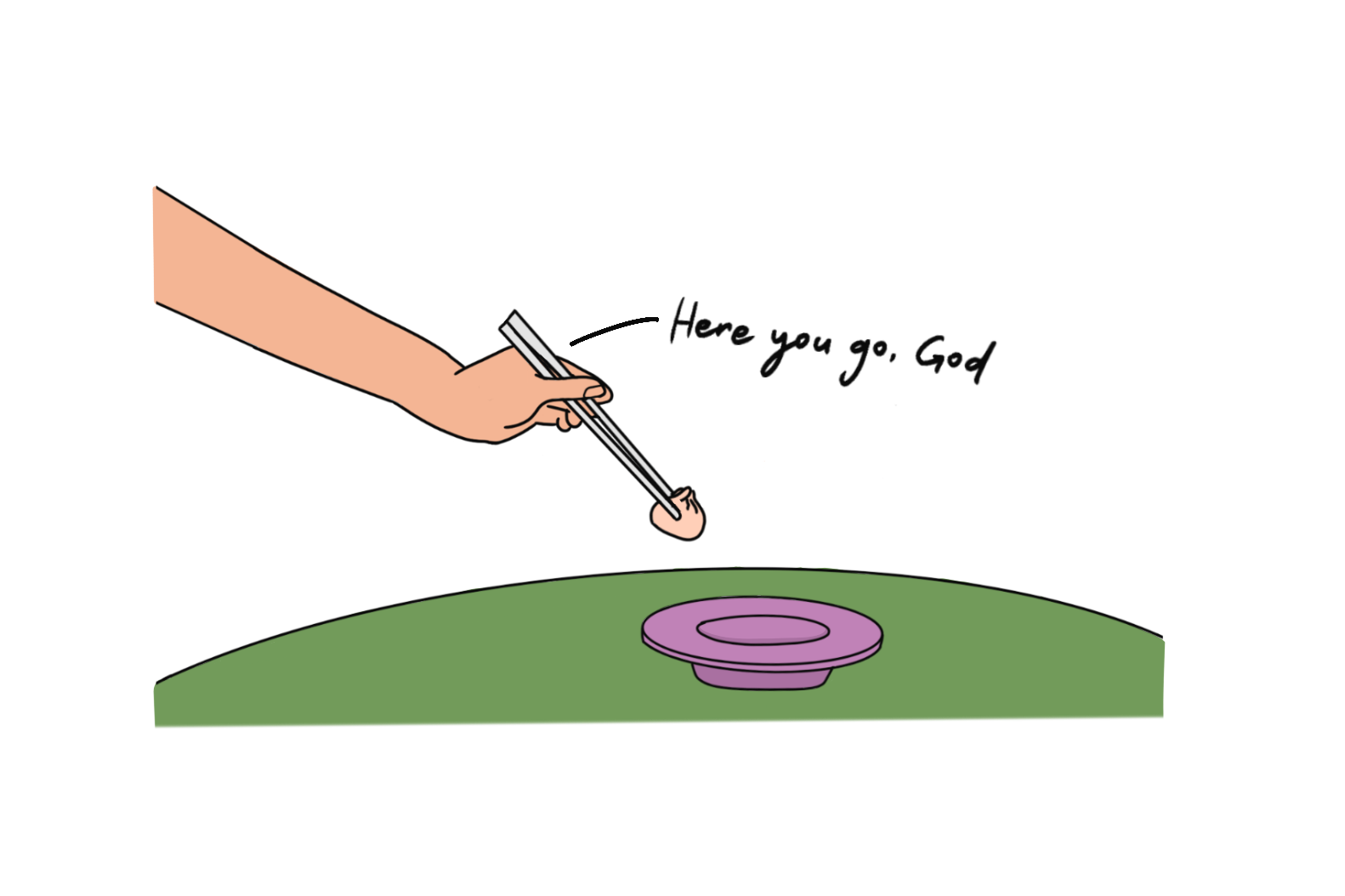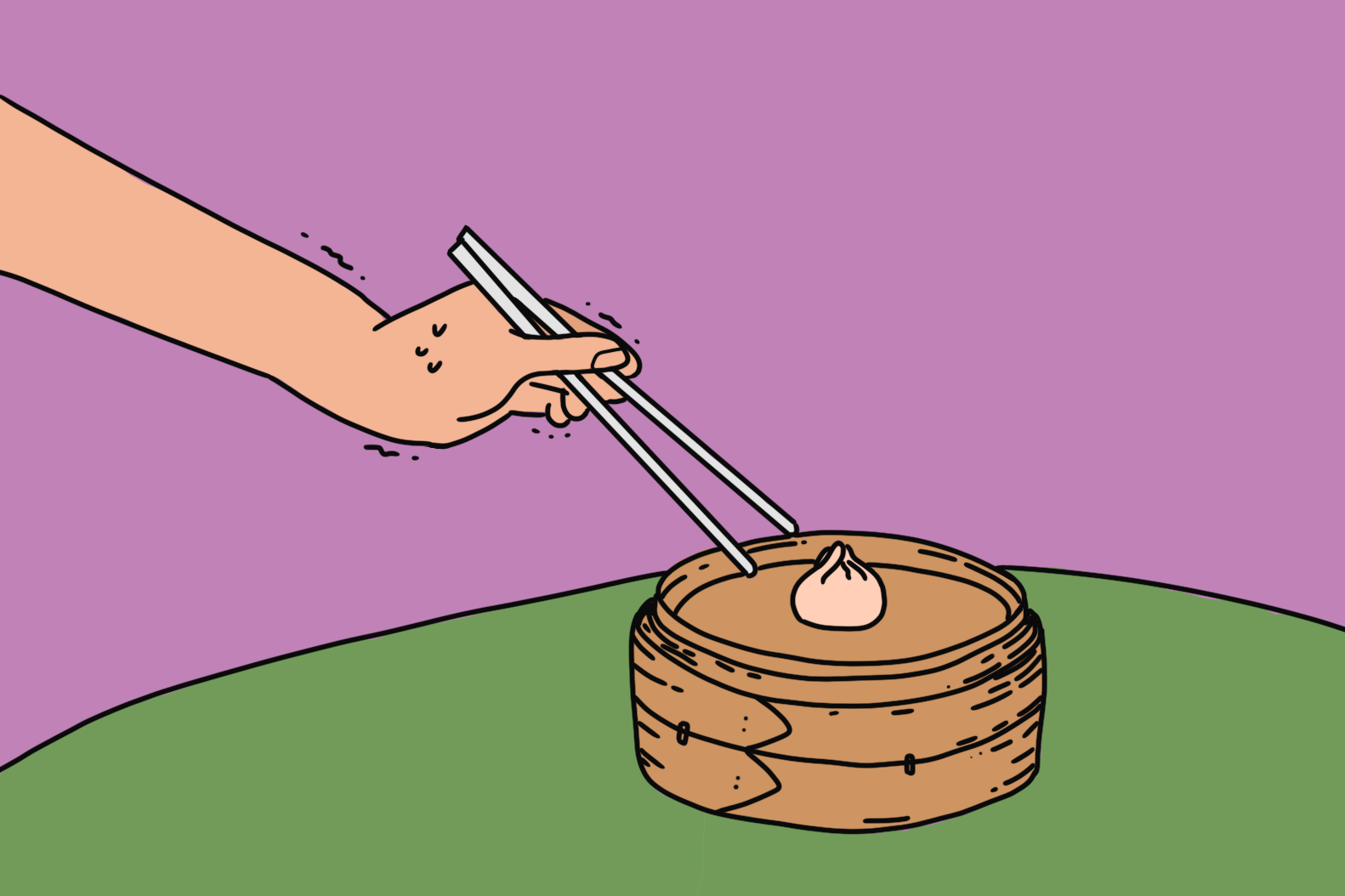The last xiao long bao grew cold as we chattered in the hawker centre, none of us making a move towards our chopsticks.
It’s the moment we’re all familiar with. And it happens at wedding banquets, during reunion dinner, over a casual hawker meal with friends — the paiseh piece.
For the uninitiated, the paiseh piece refers to the last bit of food on the table. When one last piece remains, everyone looks away and pretends they’re not aware of its existence.
I read about how our kiasu culture (being scared to lose) creates an unspoken competition where we strive not be the first. We avoid taking the paiseh piece to be perceived as generous, or not greedy. How polite we are!
My mind strayed to this as I read the book of Philippians recently. How often do we allow this paiseh culture to permeate our walk with the Lord? We are paiseh about asking certain things from the Lord, choosing to tread carefully instead.
How many times do we pause discreetly at the end of a prayer to add a disclaimer? If You will it to be, Lord.
How often do we stencil pretty prayers before Him, praying over the things we deem “spiritual” rather than the anxieties biting at our hearts?
How many areas of our life have we shut God out of, simply because they’re too messy to pray about?

Personally, I struggle with the fear of treating God like a genie or a vending machine. I write down prayer requests in my journal, and there’s that long pause where the same thoughts race through my mind:
- Am I asking for the right things?
- What if I ask and He doesn’t answer and I’m disappointed forever?
- Am I asking with the right intentions?
- Am I asking for too much?
- Does prayer mean that I’m not content with what I have now? Should I pray less?
- What if I’m only praying right now because I need something, and not because I really truly actually treasure His presence?
Sometimes I even contemplate scratching the whole prayer out, worried that it’s not aligned to His will.
As I look back in my prayer journals, I laugh at some of the really silly prayers inside, but also tear a bit at the many answered ones. The ones which seemed outlandish — even impossible — at the time. The ones I had almost considered scratching out. What happens when we choose to ask!
Today I recognise these questions for what they are: fears. The fear of messing up in prayer, and the fear of being messed up by the prayers that didn’t get answered.
These curiosities were like quicksand; I sunk into the gooey intrigue of hypotheticals, without ever taking the step to just pray.
I wonder what might happen if we stopped worrying so much about praying right, and simply laid our hearts bare before the Lord, trusting Him to parcel and sort what may or may not be best for us. To trust, indeed, that perfect love casts out all fears (1 John 4:18).
We fret about unanswered prayers, but forget that our privilege is being able to pray about all things and then have an all-knowing, all-loving and all-powerful Father freely give us what is good for us (Romans 8:32).
Philippians 4:6-7 says it best: “Be anxious for nothing, but in everything by prayer and supplication, with thanksgiving, let your requests be made known to God; and the peace of God, which surpasses all understanding, will guard your hearts and minds through Christ Jesus.”
Pray about everything. Think about that. David cries out the entire spectrum of emotions in the Psalms, too. Even Jesus was honest about the pain He was facing.

We talk a lot about Christianity being a relationship and not a religion. But this relationship sometimes looks more like a dynamic between a discipline master and a child rather than a Father and His child.
How often does our walk look like an obstacle path scattered with eggshells? How often do we get “paiseh” about the deep desires in our hearts with God (some of which might actually have been placed there by God Himself)?
In The Weight of Glory, C.S. Lewis writes: “It would seem that Our Lord finds our desires not too strong, but too weak. We are half-hearted creatures, fooling about with drink and sex and ambition when infinite joy is offered us, like an ignorant child who wants to go on making mud pies in a slum because he cannot imagine what is meant by the offer of a holiday at the sea. We are far too easily pleased.”
When the disciples ask Jesus to teach them how to pray (Luke 11:1), He doesn’t not issue a manual or dictionary, but instead answers in the context of relationships.
First, the Lord’s prayer (Luke 11:2-4). Next, the parable of a friend who comes at midnight (Luke 11:5-8), and the exhortation to “ask and it will be given to you; seek, and you will find; knock, and it will be opened to you” (Luke 11:9).
Finally, the analogy of an earthly father’s tenderness for his son: “If a son asks for bread from any father among you, will he give him a stone? Or if he asks for a fish, will he give him a serpent instead of a fish? Or if he asks for an egg, will he offer him a scorpion?” (Luke 11:11-12).
And then the most beautiful bit, “If you then, being evil, know how to give good gifts to your children, how much more will your heavenly Father give the Holy Spirit to those who ask Him!” (Luke 11:13).
… tenderness, not transaction.
Isn’t it telling that the instruction of prayer is intimated through Jesus praying as a son before a father, a friend freely seeking help in the dead of night, and finally, an earthly father’s love towards his child?
It is tenderness, not transaction. An assurance of relationship empowers boldness.

“Until now you have asked nothing in my name. Ask, and you will receive, that your joy may be full.” (John 16:24)
In truth, there is no “paiseh piece” with the Lord. There’s no need for that uneasy tension between our “kiasu” tendencies and our need for “face”.
Hebrews 4:16 says it all too clearly: “Let us then with confidence draw near to the throne of grace, that we may receive mercy and find grace to help in time of need.”
Prayer is a conversation in the secret place. It is casting our anxieties on Him, knowing that He cares for us (1 Peter 5:7).
I think it’s time we let go of the pressure to pray perfectly, and simply prayed.









